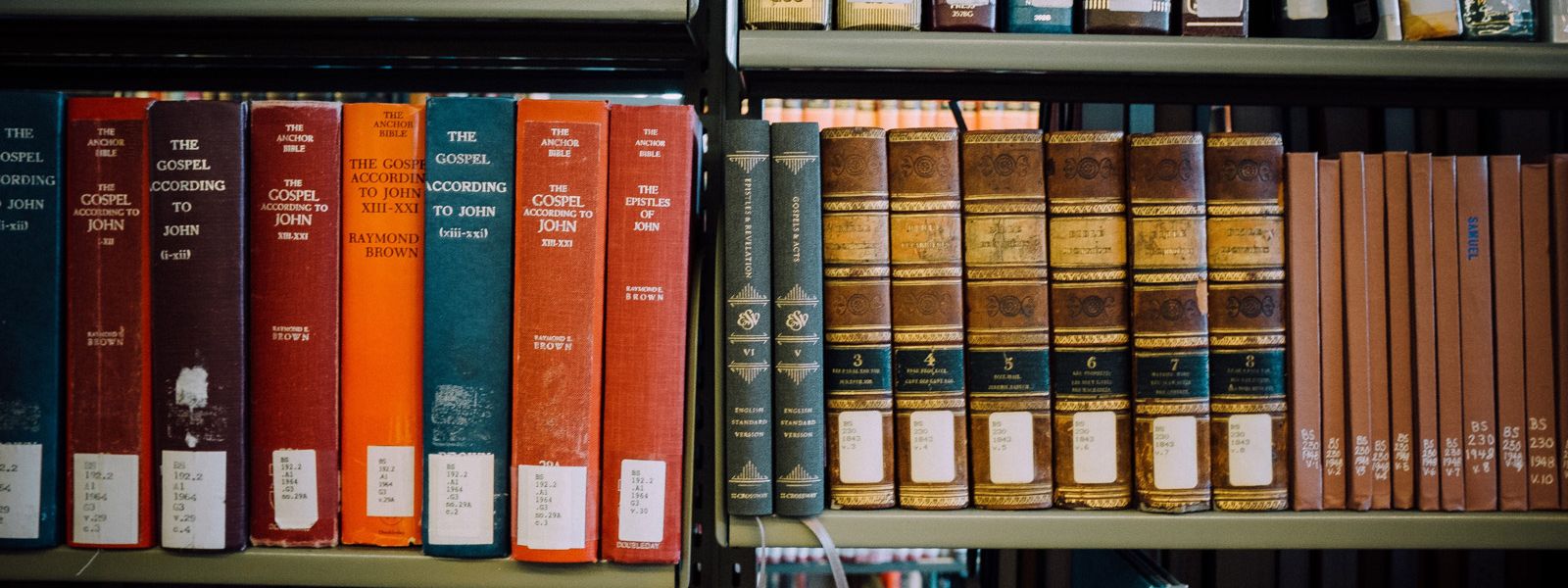Genres are categories of literature, each with their own tone and techniques. The Bible uses a handful of genres—narrative and law, prophecy and letters, poetry, and apocalyptic literature. Understanding which genre the passage is written in can help guide our reading. Follow the Biblical Genre Series to get the most out of your Bible reading.
There was no greater moment of clarity in my Bible study than when I came to understand genre. It completely changed how I read the Bible; it completely transformed my faith.
Although we rarely acknowledge their presence, genres inform our entire lives. From the way we interpret movies to literature, genre is at work in the background. Yet when it comes to the Bible, we almost entirely ignore genre. Let me prove it and show you why genre is so important.
Imagine this. I place five books in front of you with their covers and title pages removed. I then ask you to tell me the genre of each. You would begin by looking for cues from the author.
"Once upon a time …" Fairy tale.
"Shall I compare thee to a summer's day?…" Shakespearean poetry.
"It was the best of times, it was the worst of times …" Modern novel.
You would even pick up on more subtle cues, like the way characters are described and the sequence of dialogue. From these cues, you would easily distinguish novel from non-fiction, poetry from novel, satire from journalism. You could even distinguish sub-genres based on content and style, such as World-War II historical-fiction.
Genre is built into the fabric of all media. Publishers give us genre cues through cover design, typography, and even the size of the pages. Yet when it comes to the Bible, nearly all the genre cues are removed for the modern reader. Even a Bible's layout and feel—with all the biblical books bound as one book with a fancy cover and binding—confuses our senses. We look at the Bible as one book, rather than several books. Each of the biblical books has a genre and sub-genre; sometimes genres are even blurred within one book. The only thing in the format that gives us any clue is the poetic sections being offset as poetry and the books being divided by individual titles. But that's essentially all we get.
We are further confused by our historical and cultural dissonance. We're distant from the Bible. We're removed from even the most recent parts, by 2,000 years and by language (the New Testament was composed in Greek, with first-century Greco-Roman genres in mind).
But when we understand ancient genre, it transforms absolutely everything about our Bible study. It makes sense of confusing sections. It helps us understand the difference between one biblical book and another. It bridges the cultural and historical dissonance. It brings us one step closer to what the ancient reader would have naturally understood. When it comes to the Bible, we're like a westerner in an eastern culture—we need a guide. Otherwise, we will completely miss the cultural cues the Bible presents. We will dishonor our host.
Our guide would start by telling us that there are four big genre categories: Narrative, Poetry, Prophecy, and Apocalyptic. For example, the Gospel of Matthew and Genesis fall within the Narrative genre, whereas much of Daniel and Revelation are Apocalyptic. We can roughly divide the 66 biblical books that are shared by all Christian denominations into these big categories, and then into various sub-genres and styles. For example, Revelation includes Poetry; and Daniel also includes a Narrative section informed by Apocalyptic language and style. Just this basic understanding of the difference between the Gospel of Matthew and Revelation completely changes the way we interpret the books. We will explore these genres throughout this series.
Understanding genre drew me closer to God. By approaching the Bible as a series of genre-specific books, I came to understand the human authors involved in this divinely inspired text. I also came to understand how God used these human genres to compose the greatest book of all time. I came to understand the Bible a little more like an ancient. And that made hearing God's voice through the Bible just that much easier. It made my perspective of God that much clearer.
How has genre informed (or misinformed) your interpretation of the Bible? Are there some biblical books you may have completely misunderstood because you didn't understand their genre? Leave a comment. We would love to hear from you.
Read more posts about: Reading the Bible, Biblical Genres
Thanks to the support of our faithful financial partners, American Bible Society has been engaging people with the life-changing message of God’s Word for more than 200 years.
Help us share God's Word where
needed most.
Sign up to receive Bible-reading tips, tools and resources.




